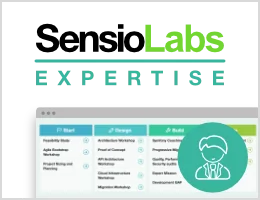Timezone
Validates that a value is a valid timezone identifier (e.g. Europe/Paris).
| Applies to | property or method |
| Class | Timezone |
| Validator | TimezoneValidator |
Basic Usage
Suppose you have a UserSettings class, with a timezone field that is a
string which contains any of the PHP timezone identifiers (e.g. America/New_York):
1 2 3 4 5 6 7 8 9 10
// src/Entity/UserSettings.php
namespace App\Entity;
use Symfony\Component\Validator\Constraints as Assert;
class UserSettings
{
#[Assert\Timezone]
protected string $timezone;
}1 2 3 4 5
# config/validator/validation.yaml
App\Entity\UserSettings:
properties:
timezone:
- Timezone: ~1 2 3 4 5 6 7 8 9 10 11 12
<!-- config/validator/validation.xml -->
<?xml version="1.0" encoding="UTF-8" ?>
<constraint-mapping xmlns="http://symfony.com/schema/dic/constraint-mapping"
xmlns:xsi="http://www.w3.org/2001/XMLSchema-instance"
xsi:schemaLocation="http://symfony.com/schema/dic/constraint-mapping https://symfony.com/schema/dic/constraint-mapping/constraint-mapping-1.0.xsd">
<class name="App\Entity\UserSettings">
<property name="timezone">
<constraint name="Timezone"/>
</property>
</class>
</constraint-mapping>1 2 3 4 5 6 7 8 9 10 11 12 13 14 15
// src/Entity/UserSettings.php
namespace App\Entity;
use Symfony\Component\Validator\Constraints as Assert;
use Symfony\Component\Validator\Mapping\ClassMetadata;
class UserSettings
{
// ...
public static function loadValidatorMetadata(ClassMetadata $metadata): void
{
$metadata->addPropertyConstraint('timezone', new Assert\Timezone());
}
}Note
As with most of the other constraints, null and empty strings are
considered valid values. This is to allow them to be optional values.
If the value is mandatory, a common solution is to combine this constraint
with NotBlank.
Options
countryCode
type: string default: null
If the zone option is set to \DateTimeZone::PER_COUNTRY, this option
restricts the valid timezone identifiers to the ones that belong to the given
country.
The value of this option must be a valid ISO 3166-1 alpha-2 country code
(e.g. CN for China).
groups
type: array | string default: null
It defines the validation group or groups of this constraint. Read more about validation groups.
intlCompatible
type: boolean default: false
This constraint considers valid both the PHP timezone identifiers and the ICU timezones provided by Symfony's Intl component
However, the timezones provided by the Intl component can be different from the
timezones provided by PHP's Intl extension (because they use different ICU
versions). If this option is set to true, this constraint only considers
valid the values compatible with the PHP \IntlTimeZone::createTimeZone() method.
message
type: string default: This value is not a valid timezone.
This message is shown if the underlying data is not a valid timezone identifier.
You can use the following parameters in this message:
| Parameter | Description |
|---|---|
{{ value }} |
The current (invalid) value |
{{ label }} |
Corresponding form field label |
payload
type: mixed default: null
This option can be used to attach arbitrary domain-specific data to a constraint. The configured payload is not used by the Validator component, but its processing is completely up to you.
For example, you may want to use several error levels to present failed constraints differently in the front-end depending on the severity of the error.
zone
type: string default: \DateTimeZone::ALL
Set this option to any of the following constants to restrict the valid timezone identifiers to the ones that belong to that geographical zone:
\DateTimeZone::AFRICA\DateTimeZone::AMERICA\DateTimeZone::ANTARCTICA\DateTimeZone::ARCTIC\DateTimeZone::ASIA\DateTimeZone::ATLANTIC\DateTimeZone::AUSTRALIA\DateTimeZone::EUROPE\DateTimeZone::INDIAN\DateTimeZone::PACIFIC
In addition, there are some special zone values:
\DateTimeZone::ALLaccepts any timezone excluding deprecated timezones;\DateTimeZone::ALL_WITH_BCaccepts any timezone including deprecated timezones;\DateTimeZone::PER_COUNTRYrestricts the valid timezones to a certain country (which is defined using thecountryCodeoption).

